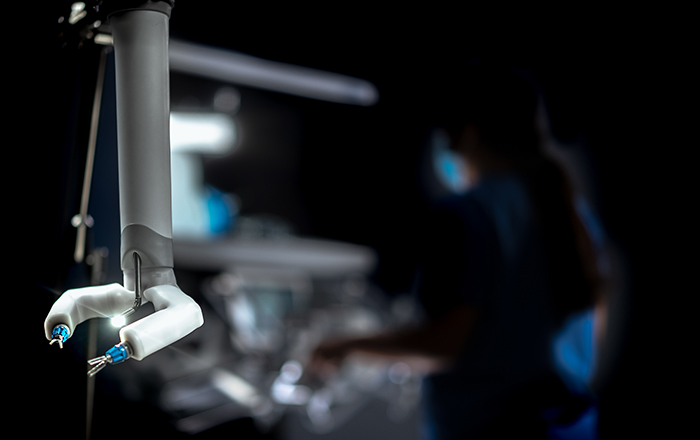
Virtual Incision’s MIRA, which stands for miniaturized in vivo robotic assistant.
LINCOLN, Nebraska (February 22, 2023)—Virtual Incision Corporation, a medical device company spearheading the development of the world’s first miniaturized robotic-assisted surgery (RAS) system, today announced the completion of its U.S. Food and Drug Administration (FDA) Investigational Device Exemption (IDE) clinical study. The study was designed to evaluate the company’s MIRA Surgical System for use in bowel resection procedures. This is an important achievement towards bringing new technologies to hospitals and their surgical robotics programs regardless of the site of care.
The surgical cases were completed at three hospitals across the country. Patients who participated in the study were followed after their procedure to fulfill study requirements. The complete data will be correlated and submitted to the FDA as part of the company’s De Novo request for market authorization. Virtual Incision is the first RAS developer to complete a U.S. IDE study to support a De Novo request in bowel resection.
“The investigators are very encouraged by our experiences trialing the MIRA Surgical System,” said Michael A. Jobst, MD, colorectal surgeon. “Across the sites, we’ve seen MIRA efficiently integrate into existing RAS programs and witnessed how it is mobile enough for use in any operating room. Some sites have even completed multiple cases in a single day. We are eager to fulfill the clinical requirements of the study in hopes that MIRA can help expand RAS access to more patients in the future.”
Virtual Incision’s platform technology is founded on more than 200 patents and applications with the first invention disclosures dating back to the early 2000s. Inventors Shane Farritor, an engineering professor at the University of Nebraska-Lincoln, and Dmitry Oleynikov, a surgeon formerly at the University of Nebraska Medical Center, created the MIRA Surgical System in a cross-campus collaboration that could redefine the scope of minimally invasive procedures.
There are 5 million Americans who undergo abdominal soft tissue procedures annually, however, more than 90 percent go without access to RAS. If authorized by the FDA, MIRA’s miniaturized, strong, and easy-to-use design could potentially increase the overall availability of RAS. It has the potential to integrate into any facility or operating room by serving as a complement to the existing mainframe RAS systems, or by expanding into new sites of care and geographies as a standalone. Virtual Incision aims to increase patient access through a clinically, operationally, and economically sound platform available to all providers.
“Completing MIRA’s IDE clinical study is a critical milestone in our journey to making RAS more accessible,” said John Murphy, president and chief executive officer of Virtual Incision. “Currently, less than 10 percent of the 90,000 operating rooms in the U.S. are equipped with mainframe RAS systems. Beyond the incredible progress of the industry pioneer, it’s still in the early days of the adoption of soft tissue surgical robotics. Our ultimate goal is to develop world-class miniature RAS devices with the required strength and dexterity to enable positive clinical outcomes for a broad range of procedure types.”
A UNeMed startup, Virtual Incision will get a further chance to prove its potential when NASA tests the device on the International Space Station in 2024.












[…] popular stories about our most successful startups such as Virtual Incision, which completed a clinical study and landed $30 million in additional investments. Or the announcement about Exavir Therapeutics and […]